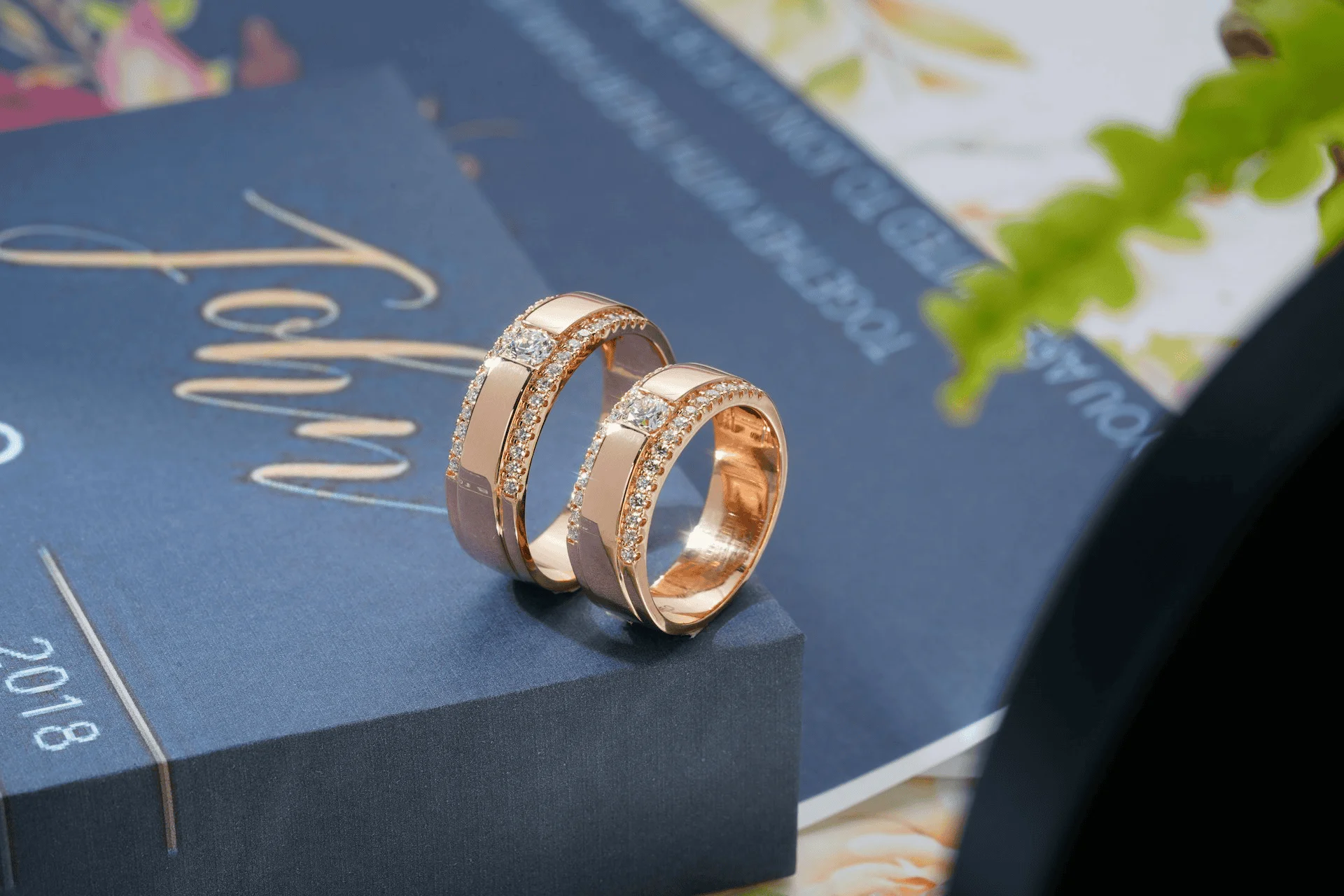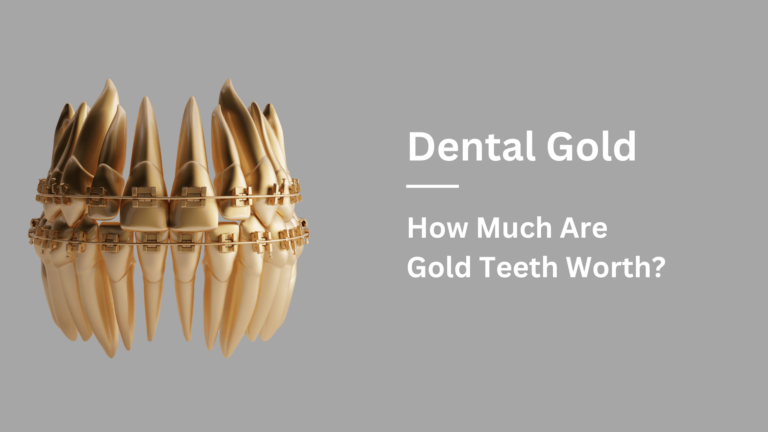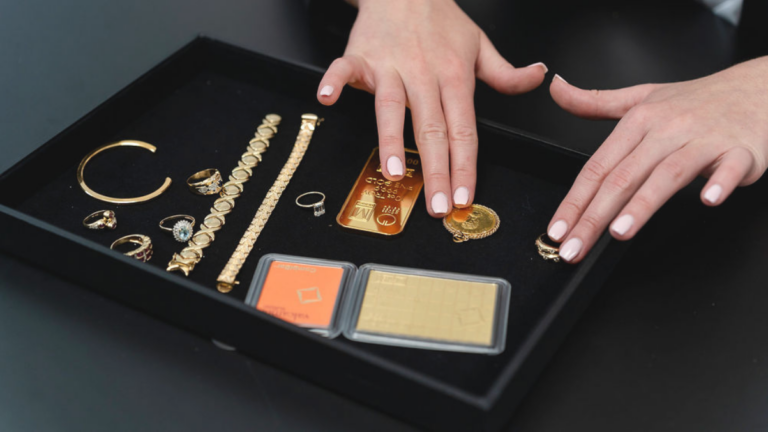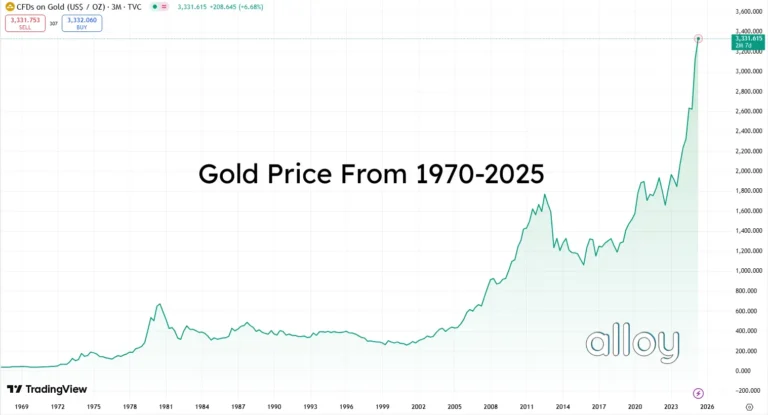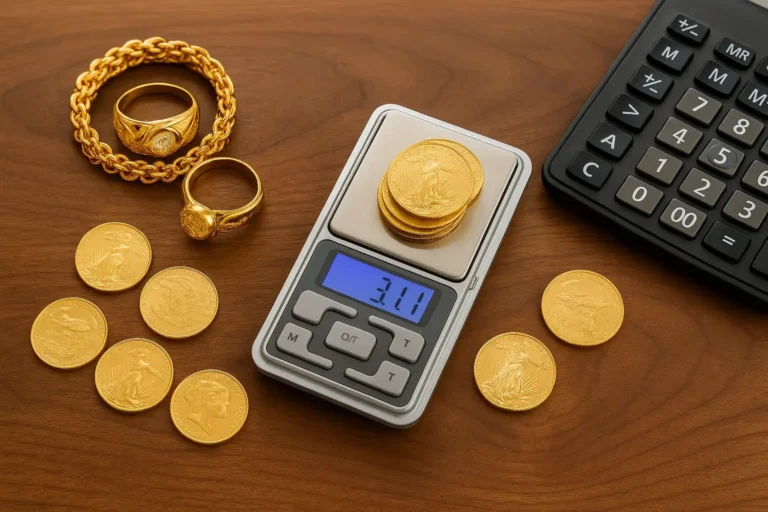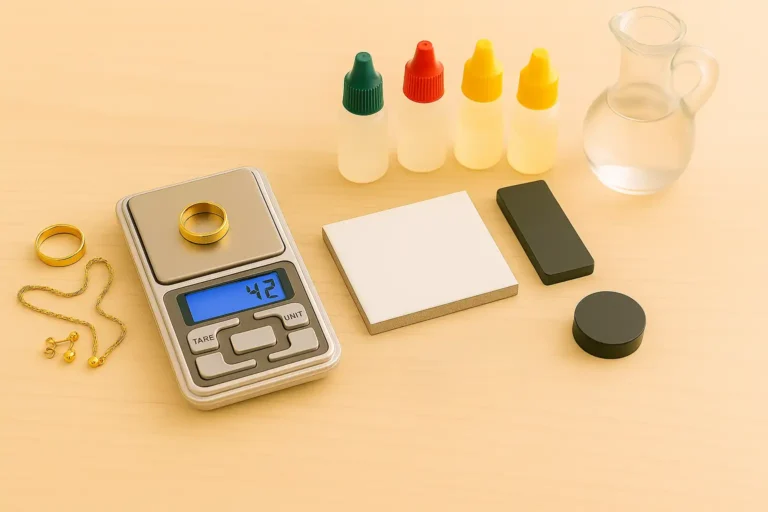How Much is Pink Gold Worth?

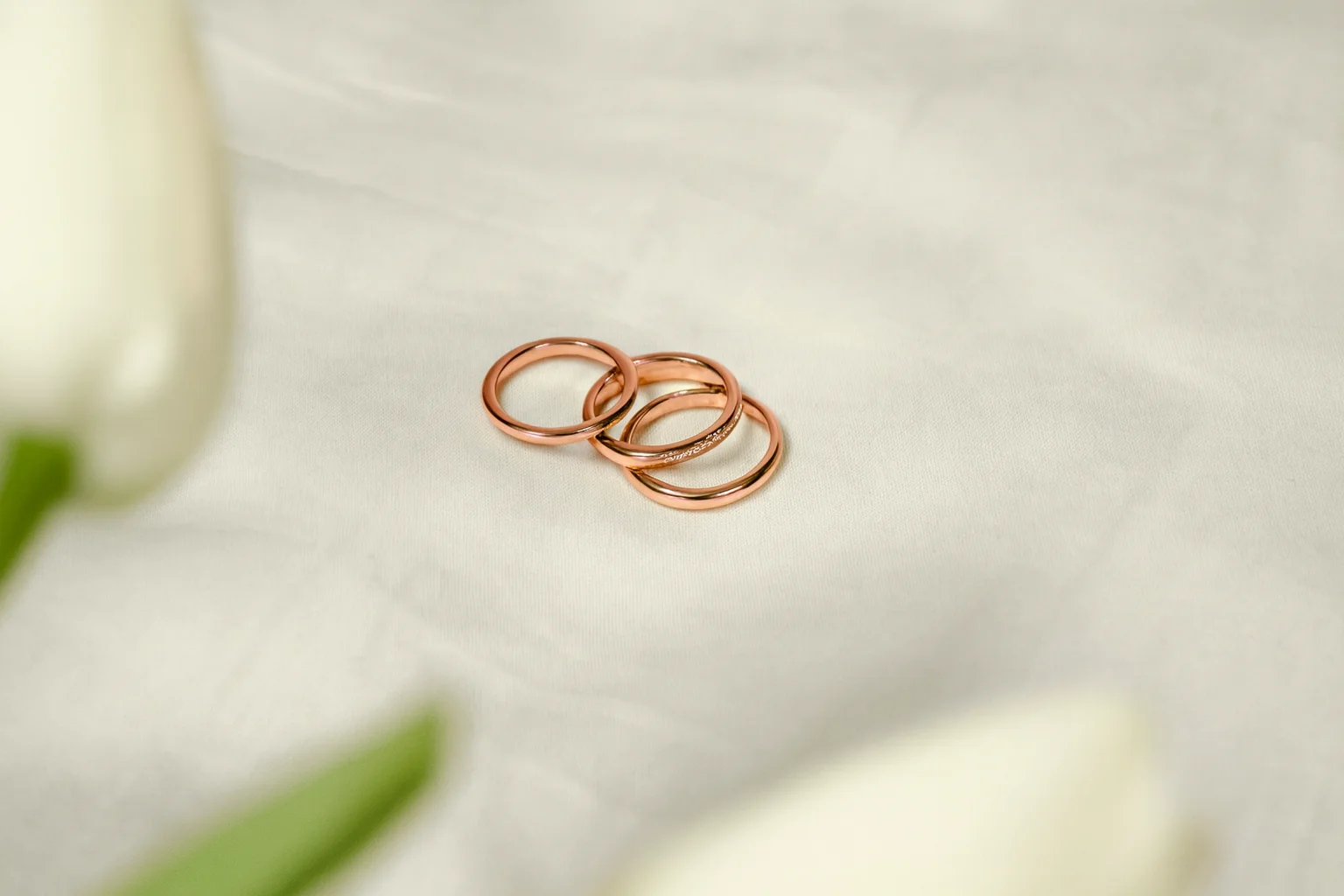
There’s the traditional yellow gold everyone’s heard of. White gold boasts a sleek, luxurious look. Then there’s pink gold with its romantic blush hue that’s just as real and just as valuable as the other two. Not to mention, pink gold is steadily growing in popularity among both buyers and sellers. But how much is pink gold worth?
A piece like this carries value beyond sentiment, even if it has been sitting forgotten in a drawer. In this article, we’ll examine its place in the modern market, its actual value, and what to expect when selling.
In a nutshell:
Rose gold has just as much value as its yellow and white counterparts of the same karat because it contains the same amount of real gold. The color found in rose gold comes from the copper content that is added, which also gives it more durability than 24K gold alone. Whether or not rose gold is worth buying has more to do with personal preferences and fashion trends than it does with the content of gold.
Understanding the Value of Pink Gold Jewelry
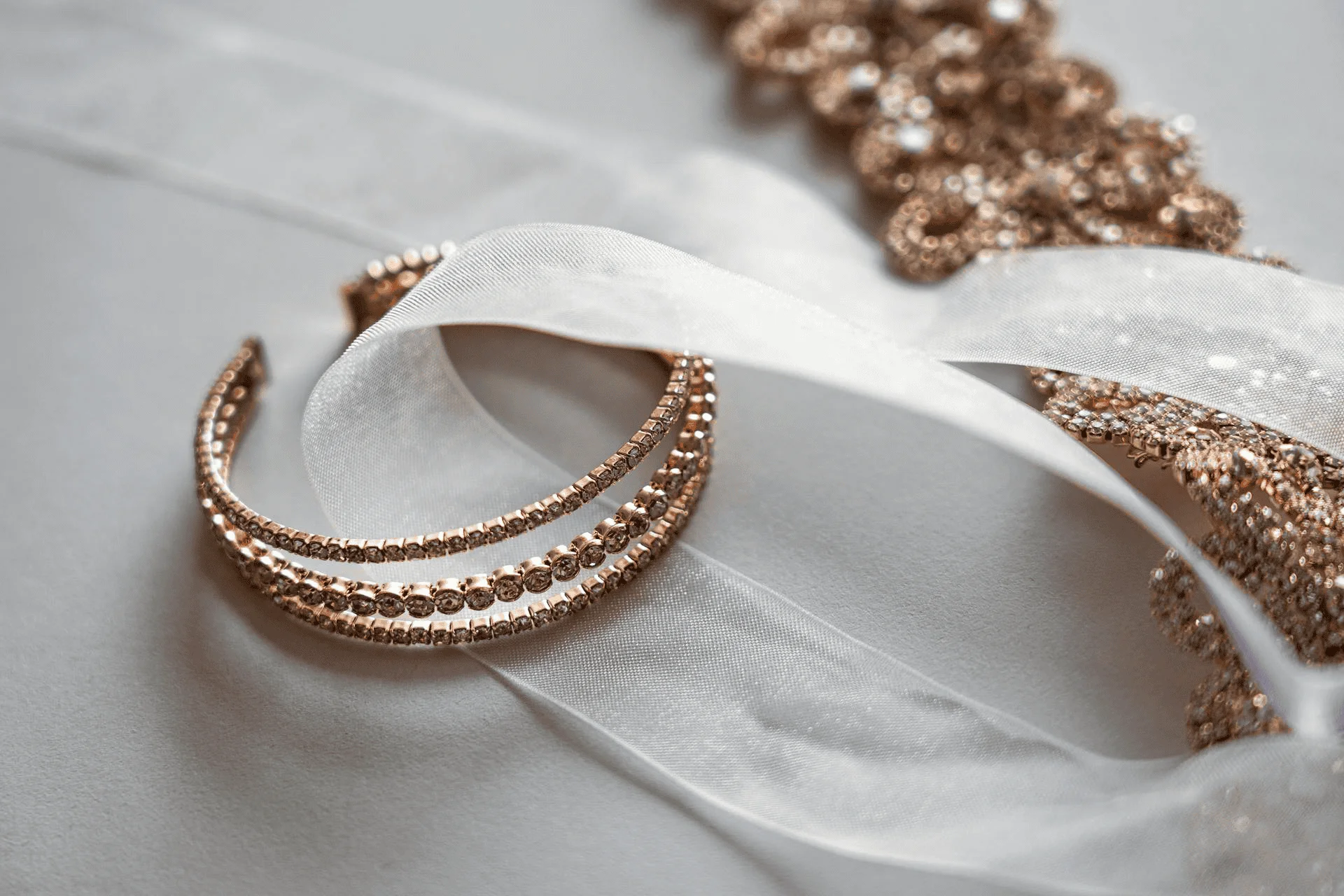
What is pink gold?
Pink gold, often referred to as rose gold, is a type of gold alloy prized for its warm, blush-like color. It’s a manufactured alloy created by combining pure gold with copper (and sometimes a small amount of silver).
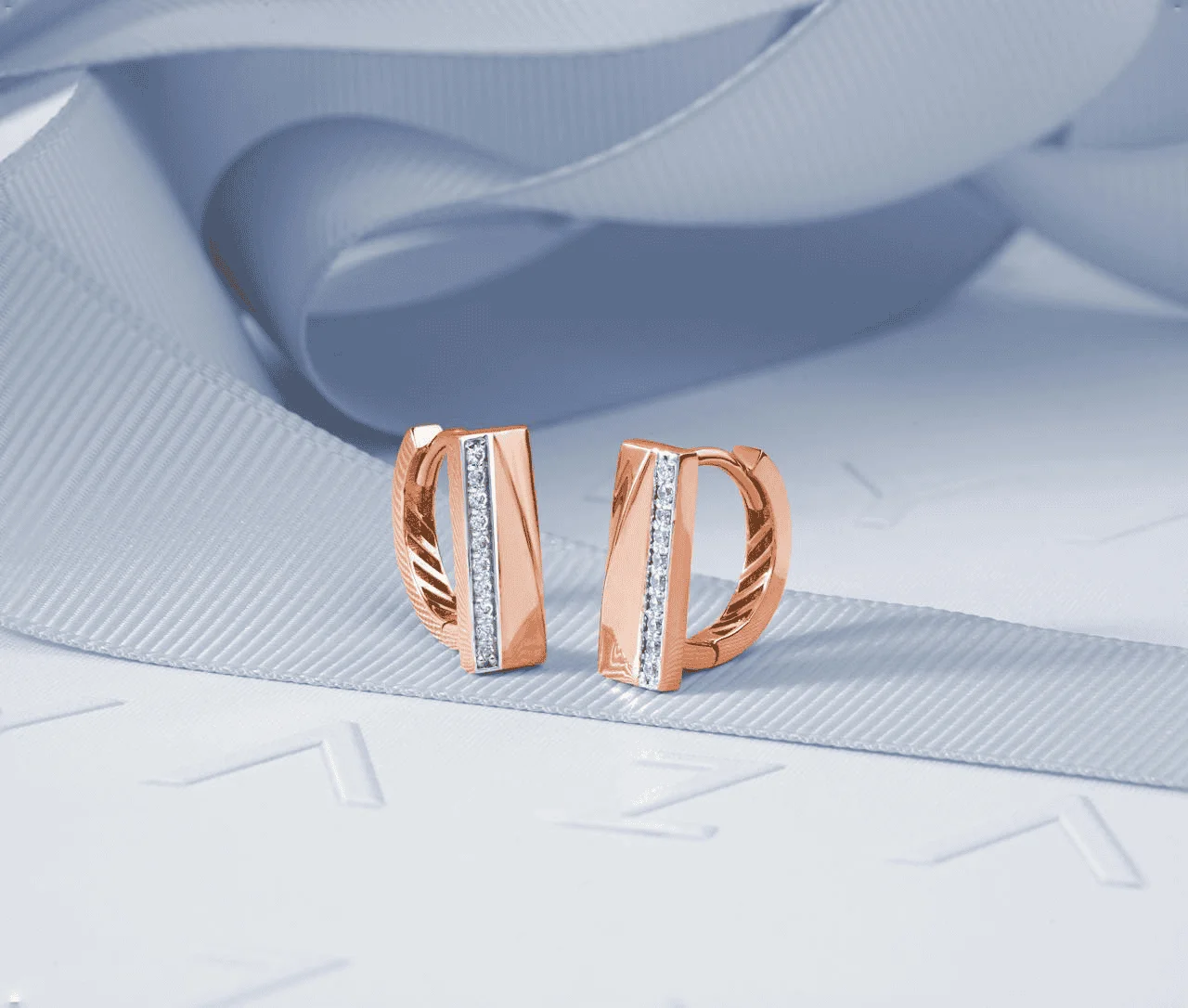
Copper is the key ingredient that gives pink gold its pinkish-red tone. In fact, the depth of the pink or red depends on the ratio of copper in the mix. The more copper present in the alloy, the deeper and redder the shade of gold. With less copper, the gold appears paler and softer, with a pink hue.
Here are some common examples of pink gold alloys achieved by mixing with other metals (by karat):
- 18k rose gold contains 75% pure gold, 22.5% copper, and 2.5% silver (most common in fine jewelry)
- 14k rose gold contains 58.3% pure gold, about 33% copper, and 8.7% silver (popular for engagement rings)
- 9k rose gold contains 37.5% pure gold and about 55–60% copper, making it the reddest and most affordable option
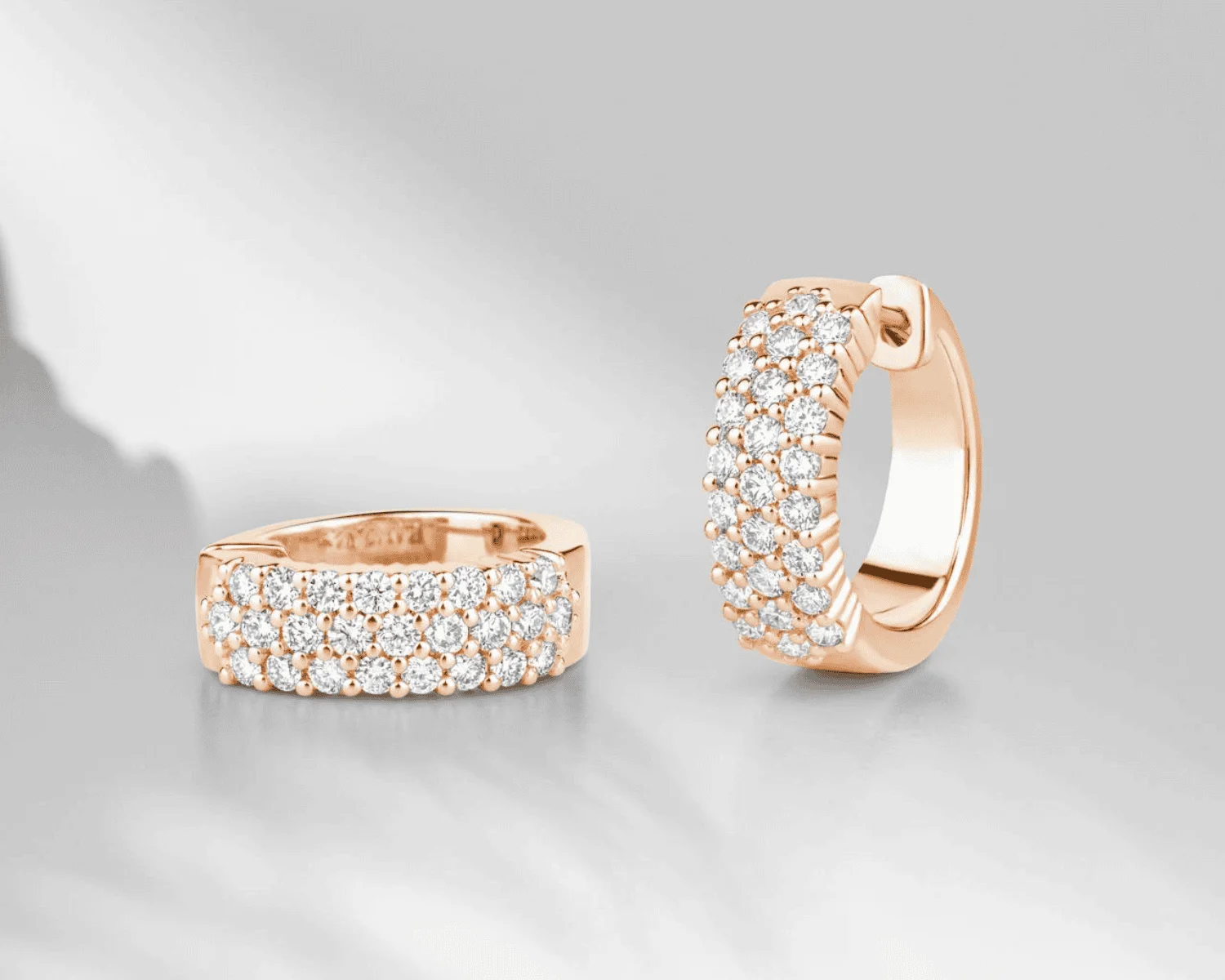
These differences explain why gold jewelry labeled as rose gold, red gold, or pink gold can appear different from one another. Even at the same karat rating, the specific mix of other metals, such as copper and silver, can alter the final shade.
Historical and contemporary trends
Rose gold first appeared in 19th‑century Russia. Its origin is why it’s sometimes referred to as “Russian gold”. Russian Imperial jeweler Carl Fabergé incorporated it into his renowned Fabergé Eggs, causing a surge in popularity. Since then, people commonly associate it with artistry and luxury.
By the 1920s, during the Art Deco era, rose gold crossed into the U.S. market. This design movement emphasized bold contrasts and luxurious materials. The warm glow of rose gold provided a striking contrast to the cooler white metals that were popular at the time.
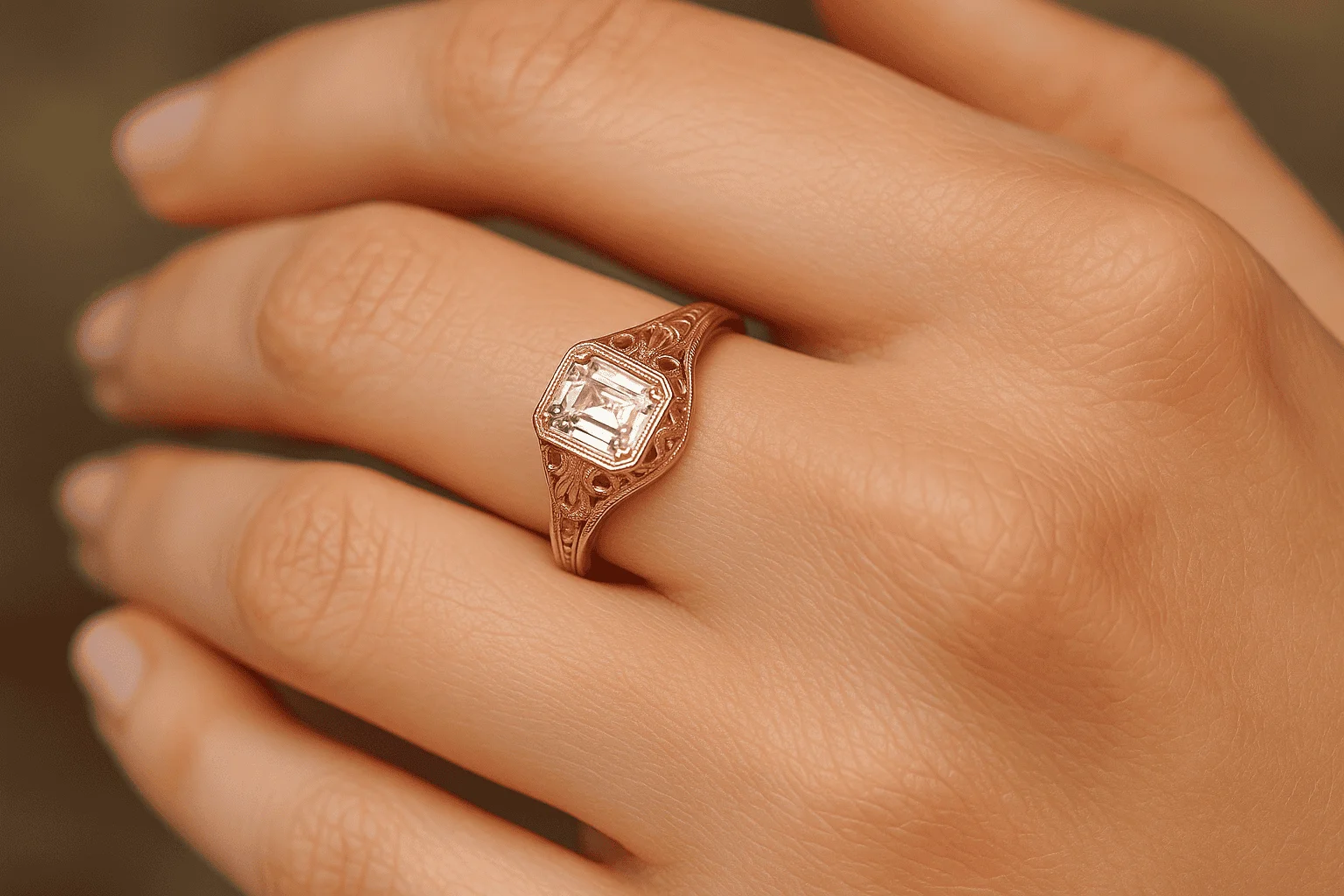
Cartier, the renowned luxury brand known for its contemporary and vintage designs, played a significant role in this rise. The most notable impact stems from the launch of its Trinity Ring in 1924. This design helped shape rose gold’s status as both stylish and sophisticated. The notable ring features intertwined bands of yellow, white, and rose gold, forming a single, iconic piece.
Its use grew even more during the 1940s, when platinum was scarce due to wartime restrictions. Rose gold emerged as a practical alternative, particularly in fine and commemorative jewelry.
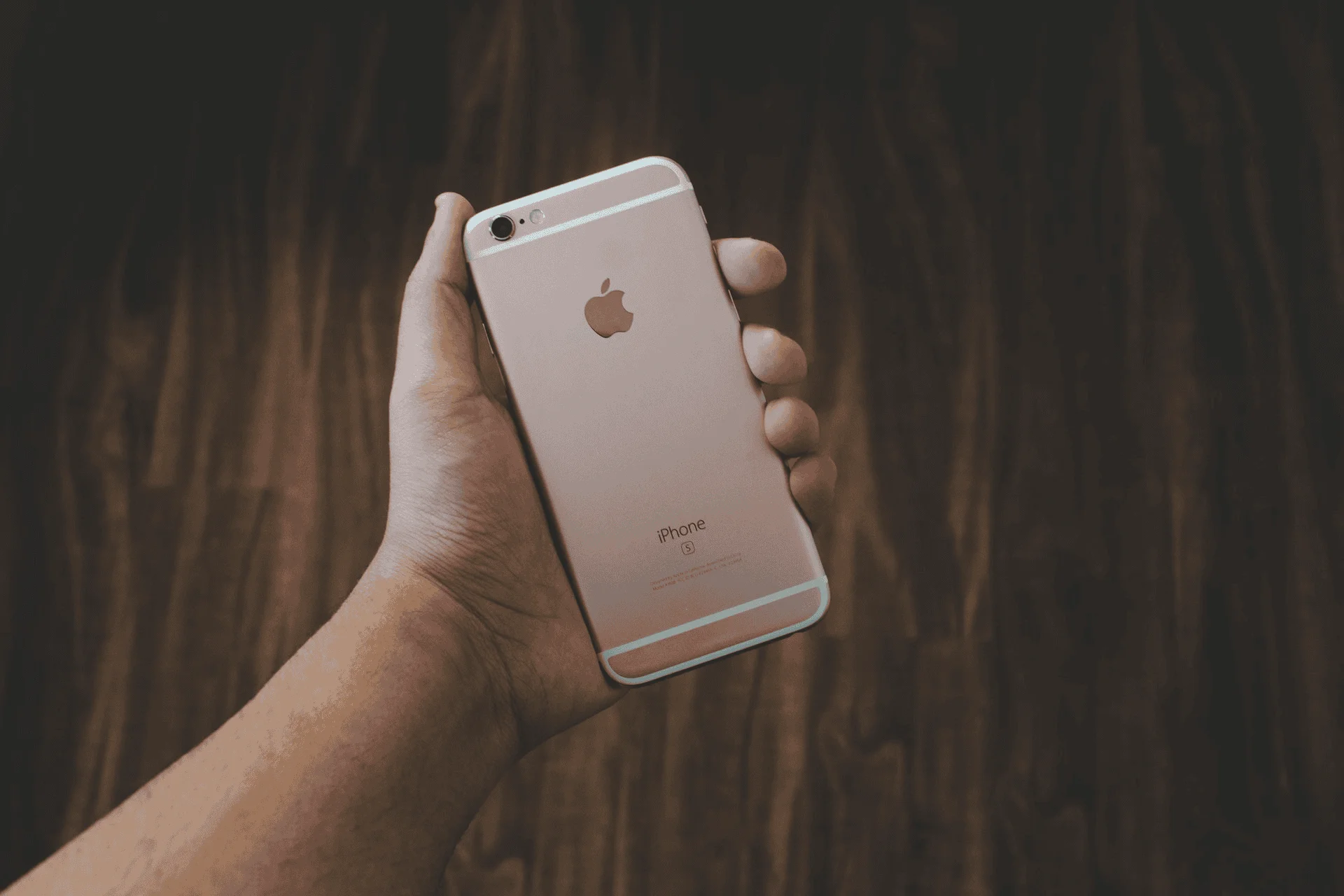
In the 21st century, rose gold has become a staple in engagement rings, fine jewelry, and luxury watches. Its romantic tones and pinkish hues have also spilled into modern designs in pop culture. One can find rose gold in fashion magazines, luxury watches, and consumer electronics. Apple used the color in its rose gold iPhone and Apple Watch.
Comparing Rose Gold to Other Gold Types
Rose gold vs traditional gold
When it comes to gold jewelry, there are generally three types, namely, white, yellow, and rose gold.
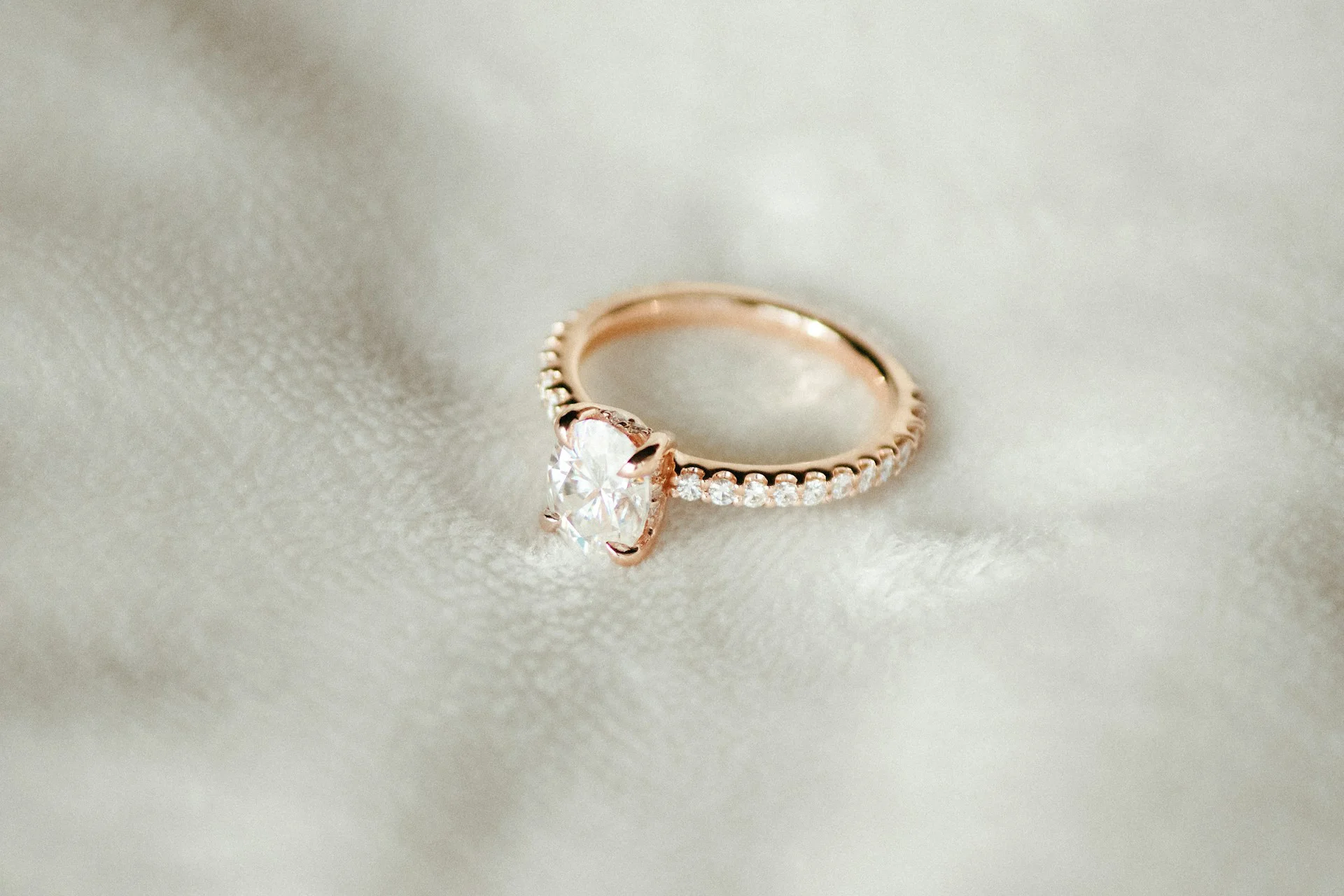
Durability, everyday wear, and gold alloys
Among the three types, rose gold is the most durable due to its high copper content. The presence of copper can push the color toward a red gold. Copper’s strength makes rose gold more resistant to bending and scratching when mixed. The alloy is well-suited for casual daily wear.
Yellow gold is typically the softest and tends to scratch and dent the most. Its alloy contains smaller amounts of silver and copper, retaining more of pure gold’s natural softness. This lack of durability in higher karat gold is why many jewelers recommend it only for special pieces. Lower karats (such as 14K) are suitable for gold jewelry intended for daily wear.
White gold sits in the middle. The palladium, silver, nickel, or zinc in its alloy is softer and more malleable than copper. That’s why white gold requires plating with rhodium. The introduction of this rare metal gives it the extra hardness and protection that rose gold gets from copper. In general, it is as wearable as yellow and rose gold for karats within the 10k to 18k range.
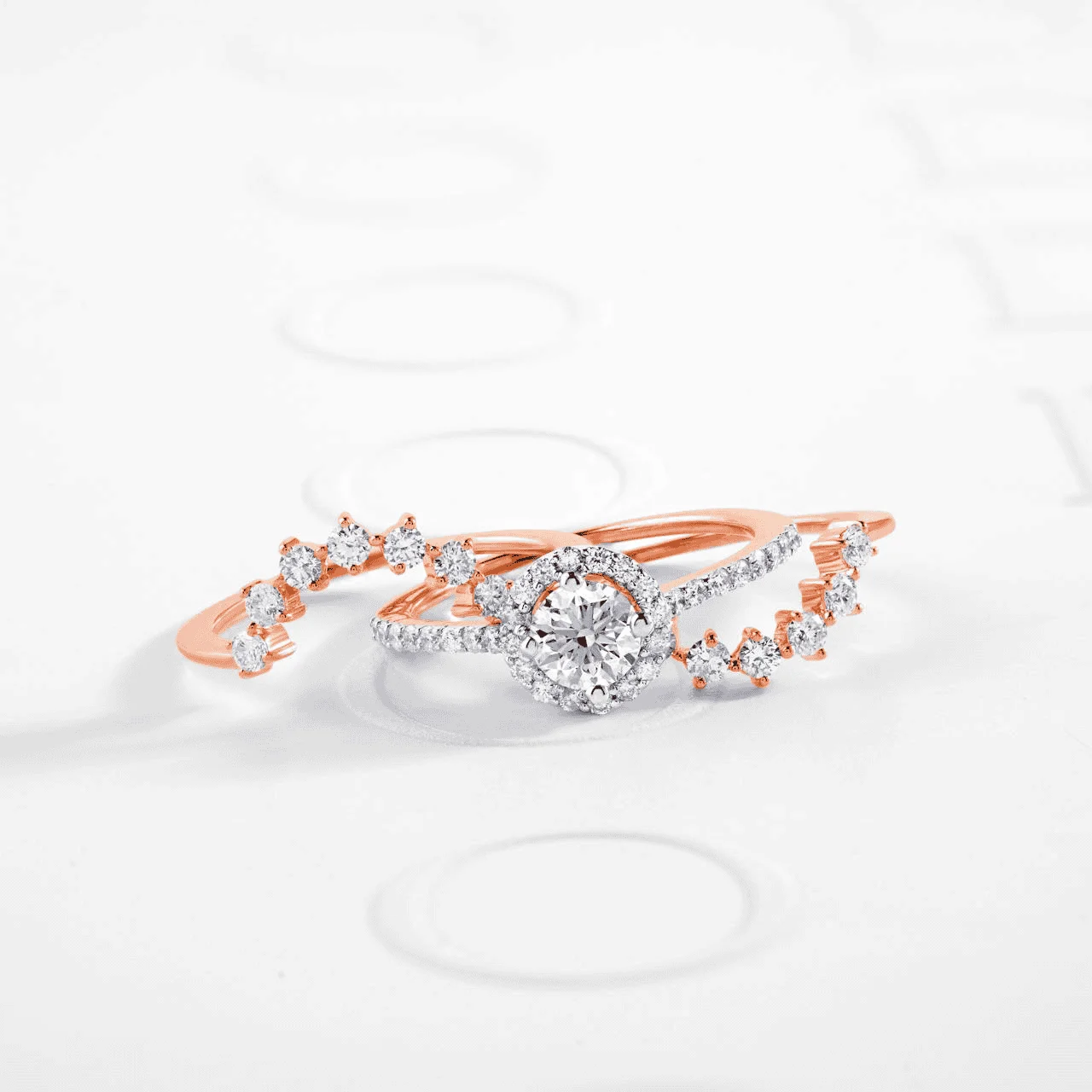
Aesthetic appeal & fashion trends
The color rose is strongly tied to romance. It’s no surprise that it often appears in engagement rings and wedding bands. Beyond sentiment, rose gold’s blush tone has also become a modern statement of style. Its prevalence spills over into mainstream fashion and even tech gadgets.
Currently, rose gold resonates most with the younger generation.
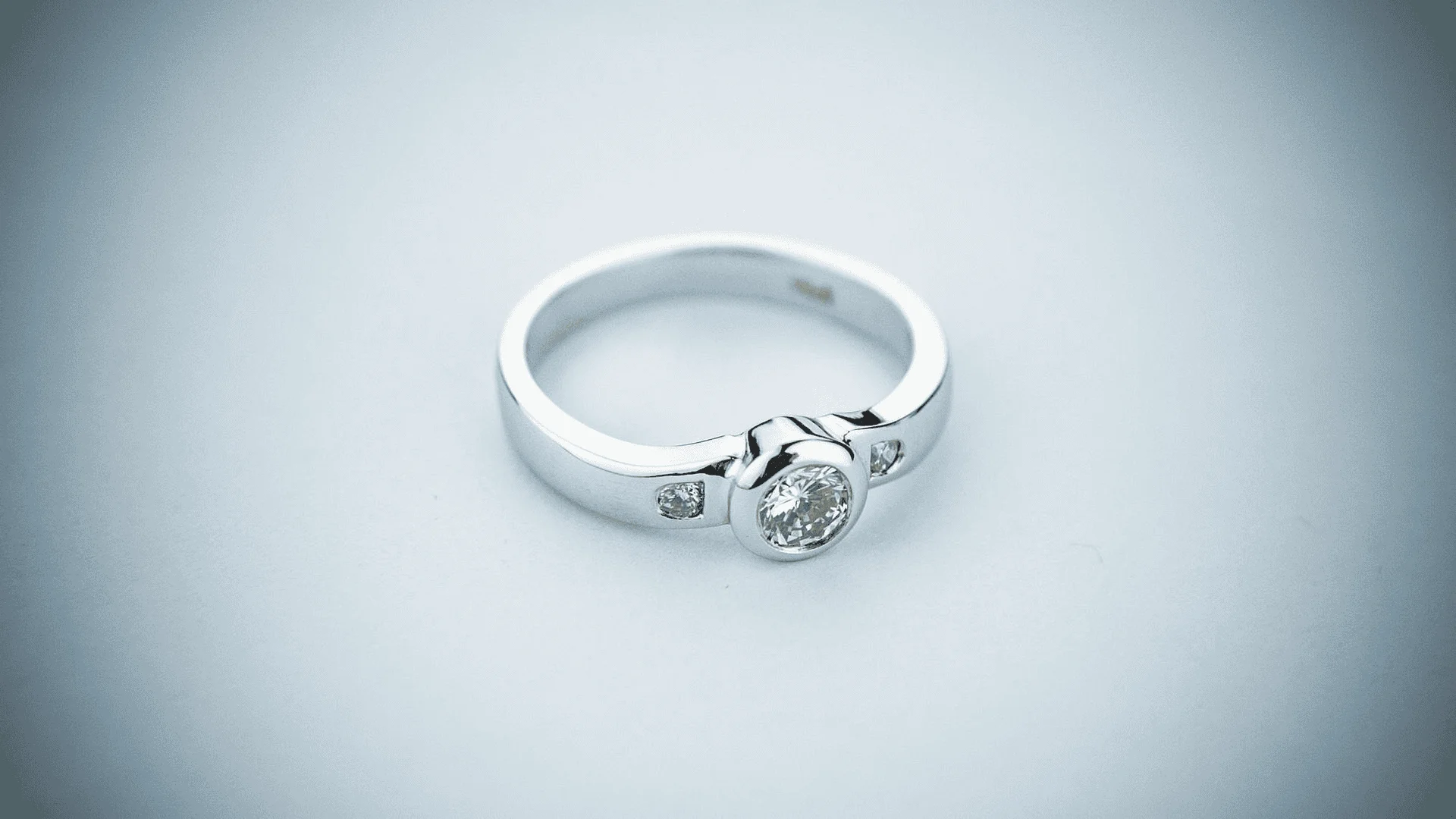
White gold, on the other hand, draws people in for different reasons. Its sleek, silvery rhodium finish amplifies the high-end image that luxury buyers look for. At the same time, it fits neatly into the “clean aesthetic” trend, which appeals to those who prefer minimalism.
And then there’s yellow gold, with its timeless classic golden color and timeless appeal. It’s still the most popular worldwide. Much of its popularity comes from its deep cultural and ceremonial significance, particularly in India and the Middle East. Yellow gold’s rich heritage continues to drive global demand.
Rose gold prices and investment considerations
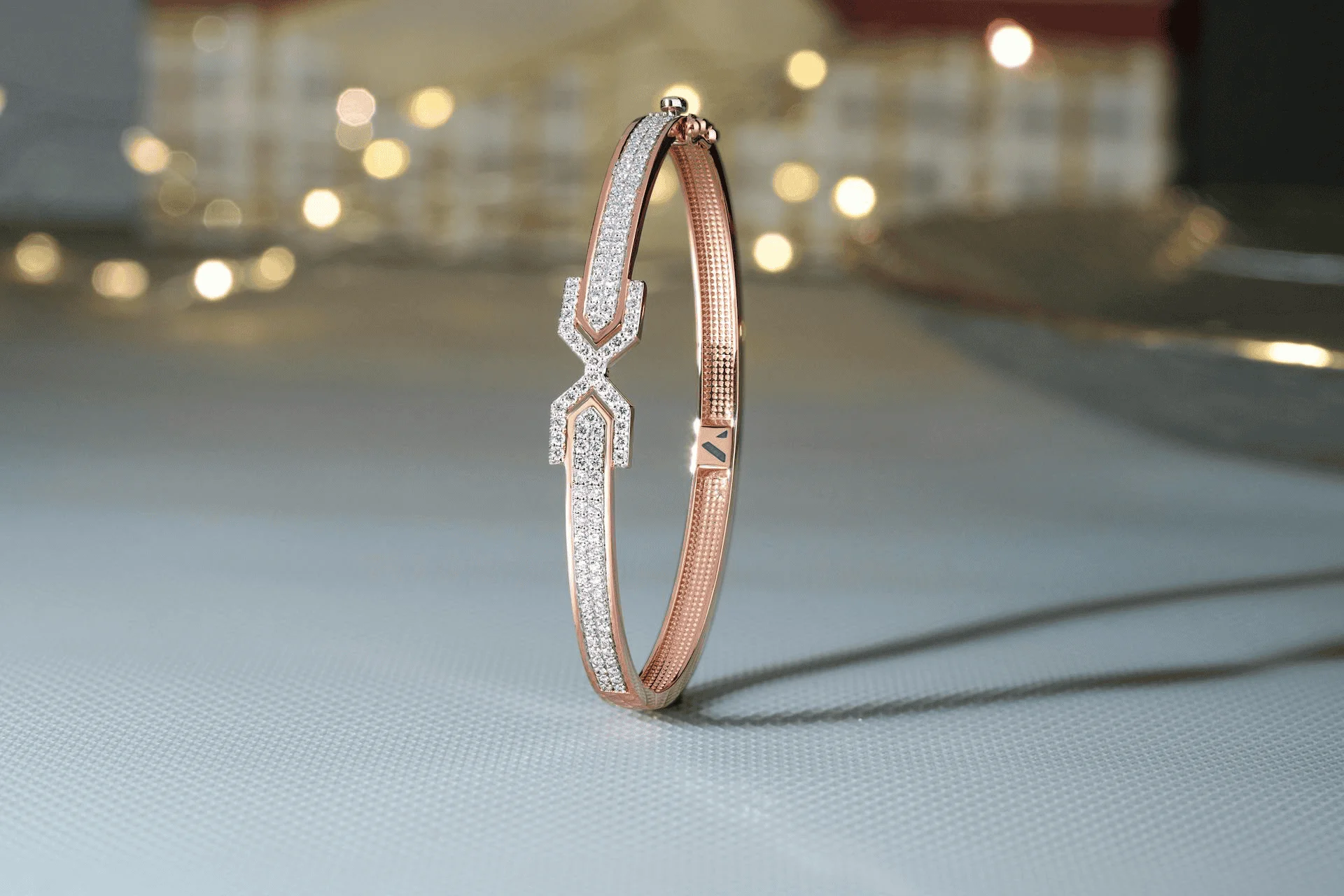
There are two layers to peel when it comes to price.
The first is intrinsic value, directly tied to karat – or pure gold content. On this front, rose gold is just as valuable as yellow gold or white gold of the same karat. In other words, the price remains the same across all colors.
Take, for instance, an 18K yellow gold ring. It has the same gold percentage as an 18K white or 18K rose gold ring. That means all these golds’ melt value remains the same.
That means when selling gold jewelry to a company like The Alloy Market, the payout is the same, no matter the color. The focus on the weight and purity of a gold piece determines the price.
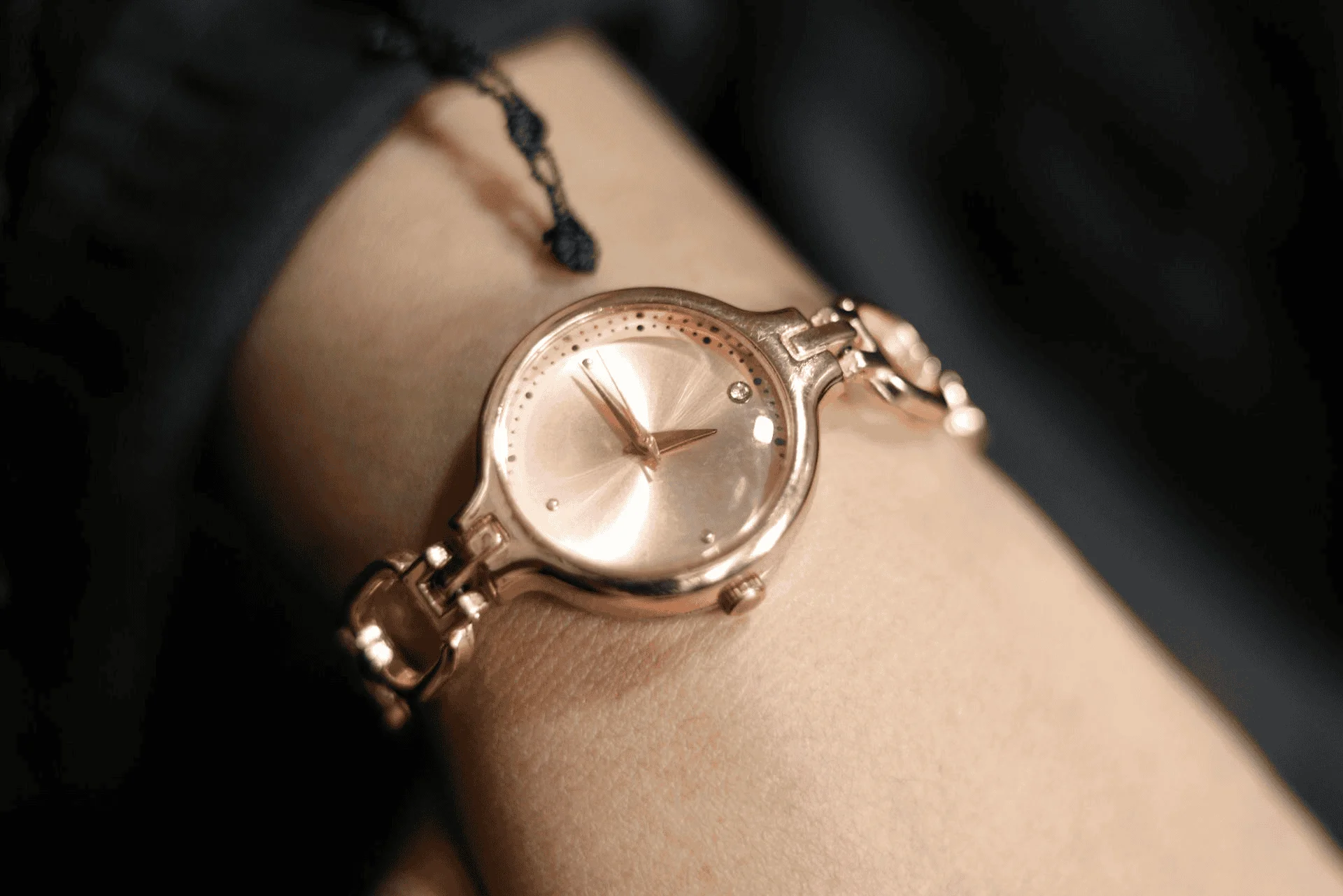
The second layer is resale value, which depends on jewelry market perception. Personal style and desirability play a role in this avenue. It’s also where most of the price differences show up.
Rose gold may fetch less than yellow gold in resale markets due to the higher global demand for yellow gold. However, branded rose gold items from Cartier or Tiffany can command strong resale prices thanks to their popularity among luxury buyers.

Ready to sell your gold?
Request a free Alloy Appraisal Kit, ship from home, and receive a same-day offer after appraisal.

Ready to sell your gold?
Request a free Alloy Appraisal Kit, ship from home, and receive a same-day offer after appraisal.
And sometimes, the difference comes down to pure subjectivity. A buyer may choose rose gold because it matches their wardrobe, complements their gadgets, or they like the color.
Different buyers. Different preferences. Different prices.
Factors Affecting Pink Gold Value
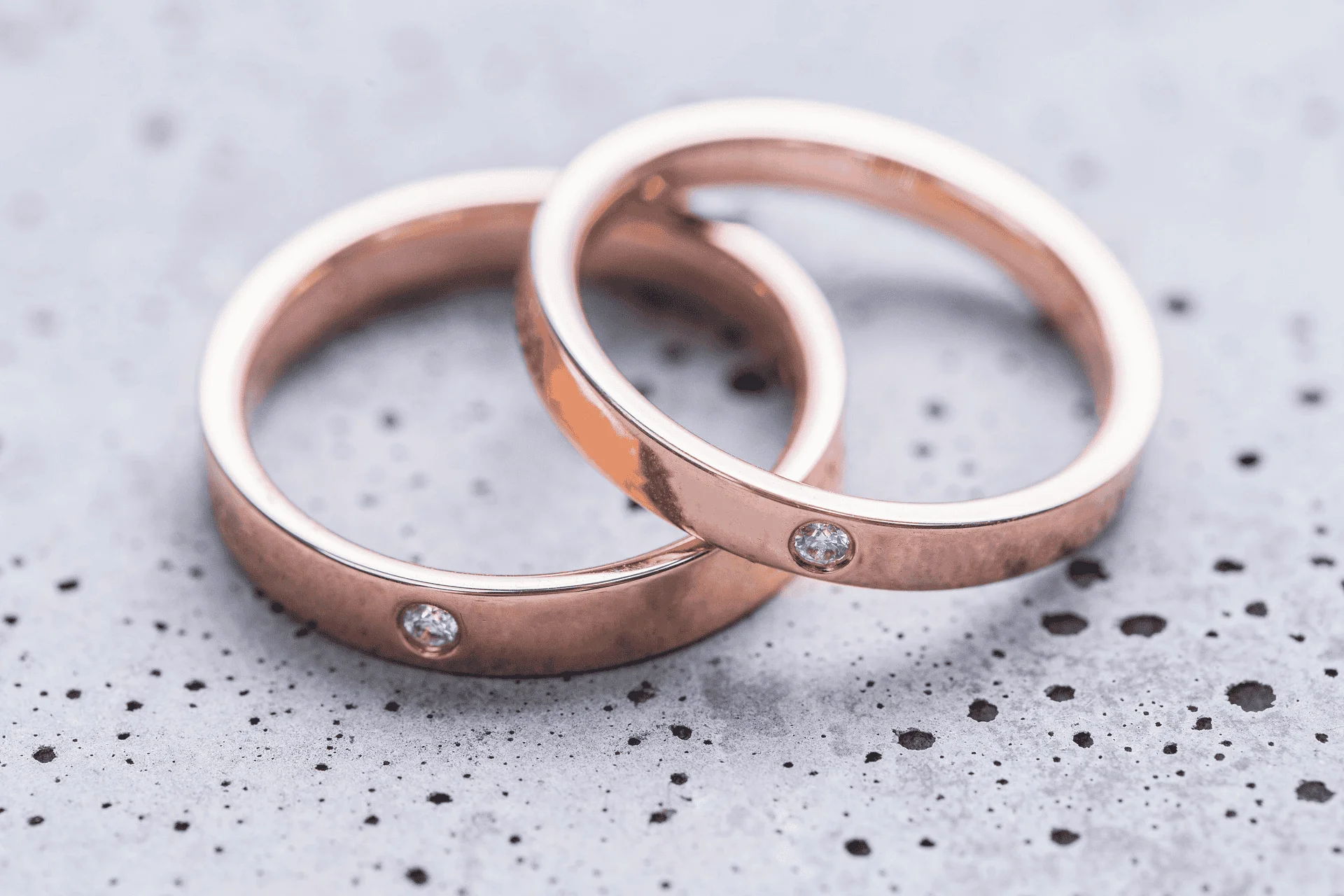
If someone is asking, ‘How much is rose gold worth?‘ always start with the gold karat and purity.
The karat indicates the percentage of pure gold in the alloy, directly affecting the price of rose gold per gram. The higher the karat, the more gold and the more valuable the piece.
To illustrate, let’s use the average gold price of $108 per gram (June 2025 market spot price) and apply it to a typical 5‑gram wedding band. The table below shows approximate melt values based on purity:
| Karat | % Gold | Gold in grams | Sample Calculation | Approx. Value |
|---|---|---|---|---|
| 9K | 37.5% | 1.875g | 1.875g × $108 | ~$202 |
| 14K | 58.3% | 2.915g | 2.915g × $108 | ~$315 |
| 18K | 75% | 3.750g | 3.75g × $108 | ~$405 |
9K
% Gold: 37.5%
Gold in grams: 1.875g
Sample Calculation: 1.875g × $108
Approx. Value: ~$202
14K
% Gold: 58.3%
Gold in grams: 2.915g
Sample Calculation: 2.915g × $108
Approx. Value: ~$315
18K
% Gold: 75%
Gold in grams: 3.750g
Sample Calculation: 3.75g × $108
Approx. Value: ~$405
As the example shows, the same 5‑gram ring can vary widely in melt value depending on its karat rating. A higher karat gold always fetches a higher price compared to a lower karat of the same weight.
Because the gold content is identical, a 14K rose gold ring carries the same melt value as any other color 14K ring.
For a quick estimate of a piece of rose gold jewelry, our free gold calculator is here to help! Plug in the weight and karat of the piece to see what it might fetch at today’s prices.
Gold Melt Value Calculator
Current Market Value:
$0.00
Average Pawn Shop Offer:
$0.00
Alloy’s Minimum Offer:
$0.00
Market timing and economic factors
Gold prices fluctuate in response to inflation, interest rates, and global demand. For example, during the 2020 pandemic, gold climbed above $2,000 an ounce as investors rushed to it as a haven. More recently, in 2025, gold has hovered between $2,200 and $3,500 per ounce, briefly reaching historic highs of over $ 3,700.
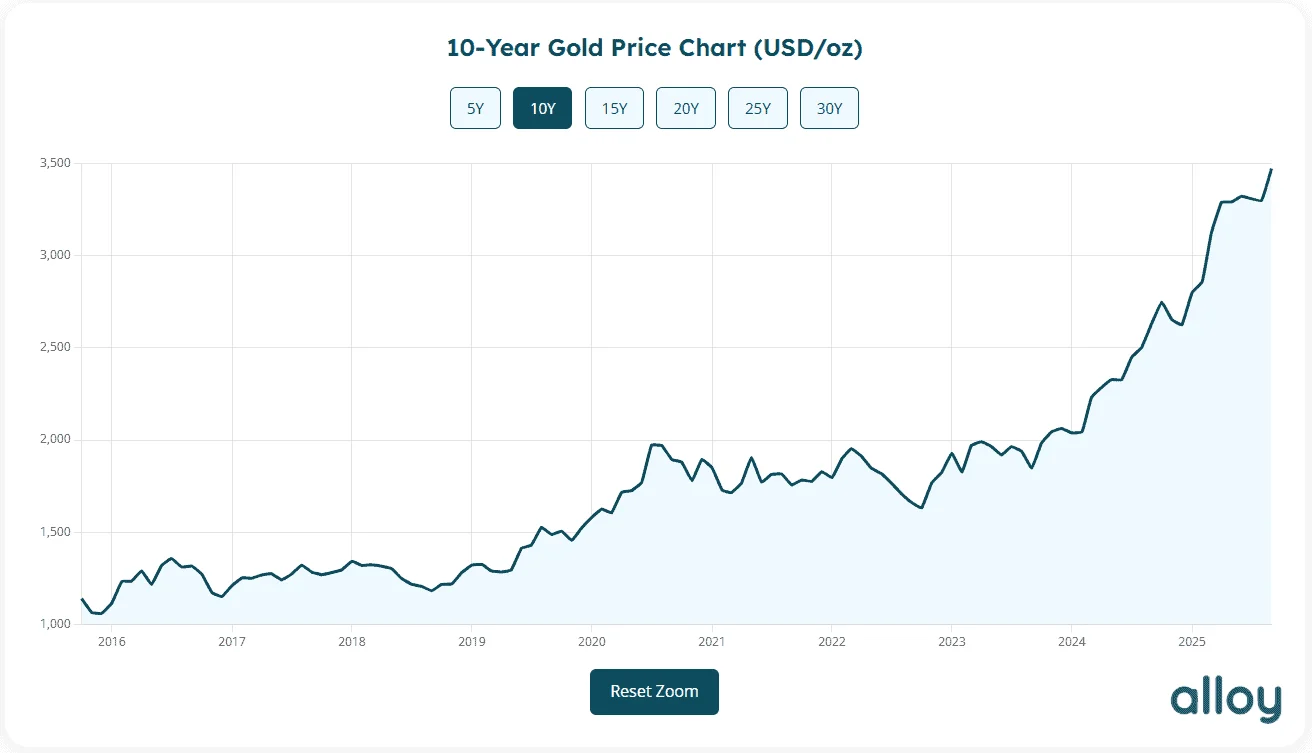
When prices are strong, rose gold jewelry is worth more simply because the melt value depends on the spot price. But selling during a dip means walking away with less.
Global market demand also plays a significant role. When central banks or investors buy heavily, it can tighten supply and push prices upward. On the other hand, when demand for gold jewelry slows, buyers may offer lower payouts.
To be clear, this doesn’t mean rose gold has lost its intrinsic value. It simply reflects temporary market conditions that can affect resale prices.
Is Pink Gold Worth Buying?
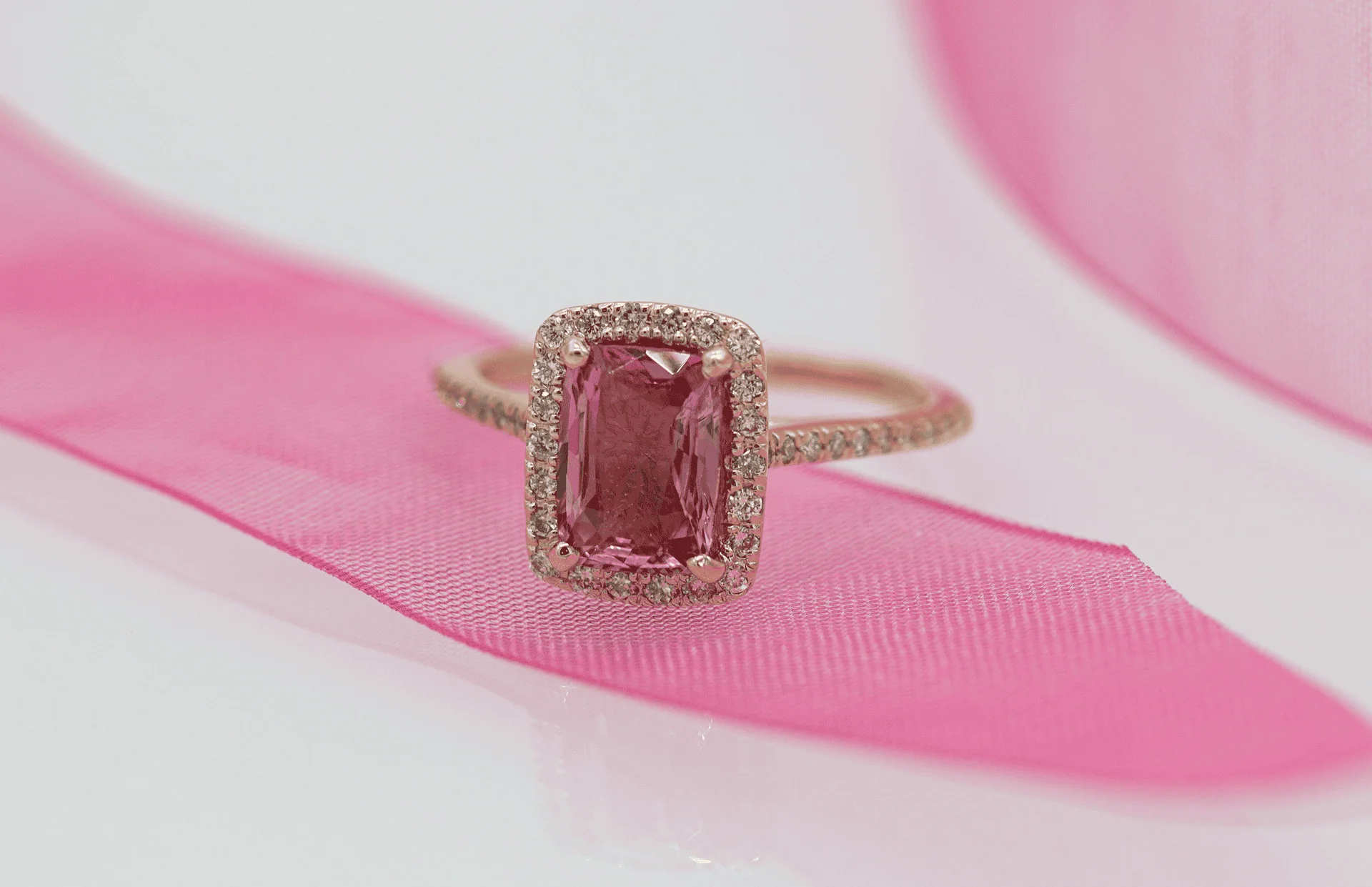
Consumer considerations when choosing rose gold
If someone is asking, “Is pink gold a good choice for me?” the answer all comes down to what matters most to them. Below are some pros and cons to provide a picture of how pink gold fares in multiple areas. In turn, it can help someone decide if it’s worth buying at all.
Pros of pink gold:
- Durable: More copper in rose gold makes it stronger and more resistant to scratches than white or yellow gold. It is perfect for everyday wear.
- Less maintenance: Unlike its white relative, rose gold doesn’t require rhodium plating, so it holds its look with minimal upkeep
- Trendy appeal: Its color matches modern fashion, jewelry collections, and tech trends (e.g., smartphones and watches)
Cons of pink gold:
- Allergy risk: Some pink gold alloys may cause skin irritation, particularly in individuals sensitive to copper or nickel, metals commonly used in their composition.
- Not universally timeless: Rose gold may be trendy now, but it may not be later on
- Potential for limited options: Some jewelers carry fewer rose gold pieces compared to the more popular white or yellow gold.
Resale value of rose gold
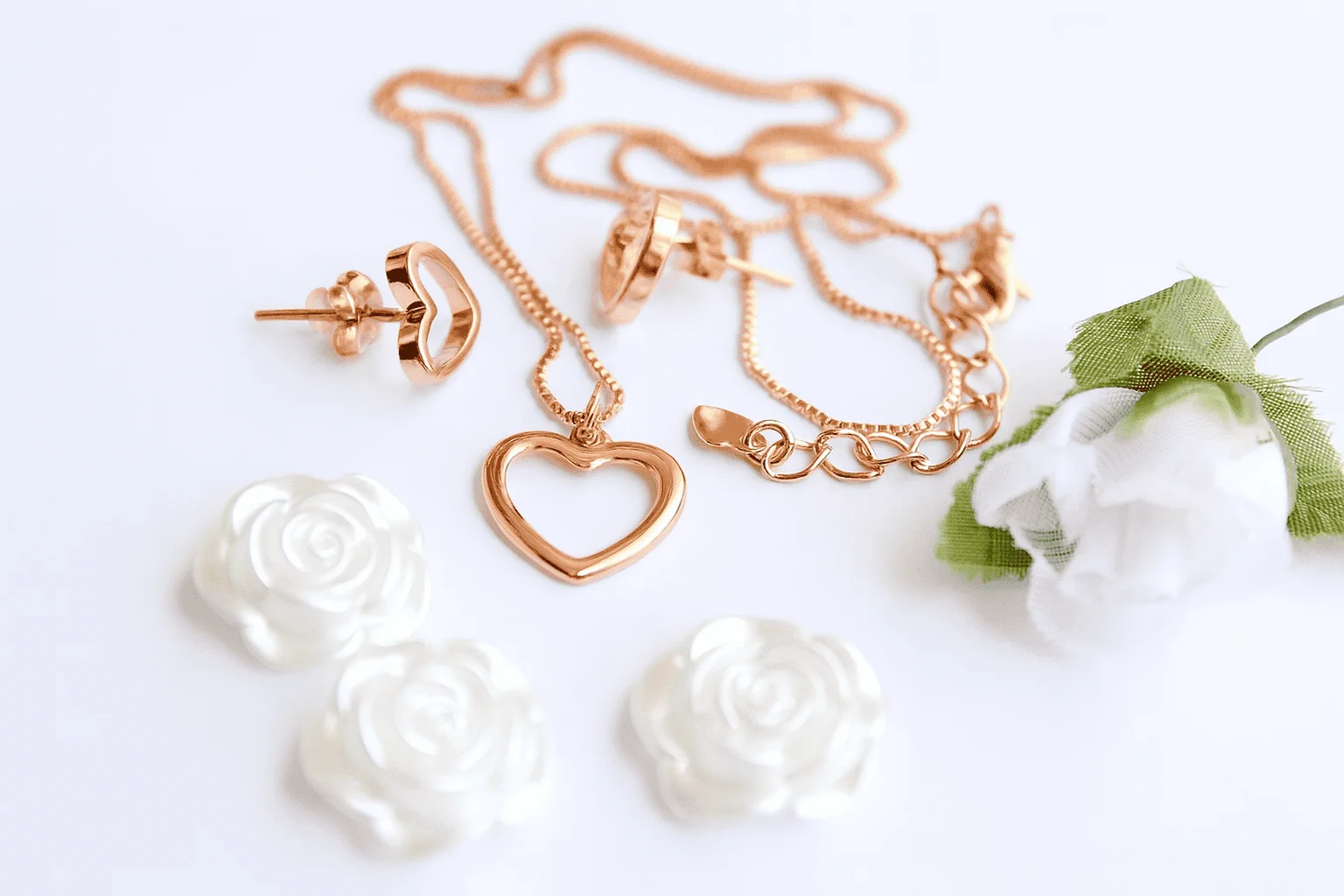
If someone is buying pink gold with the intention of selling it later, it’s helpful to know what to expect. This way, they can decide if it’s worth buying in the first place.
When selling to gold buyers who pay based on melt value (usually online buyers), payouts range from 70% to 90% of the gold’s melt price.
That means they won’t pay the full spot price. But consider that gold prices have generally trended upward over the years. Rose gold remains one of the most reliable safe-haven assets during uncertain times.
If the goal is to sell gold jewelry for more than its melt value, look toward private buyers, jewelers, or collectors. In these cases, factors such as condition, brand, and uniqueness become essential considerations.
Well-kept rose gold pieces from Cartier or Tiffany could easily fetch more than their melt value. The same can be said for pieces with interesting vintage jewelry designs as well.
Regardless of the selling route, timing is always the common denominator in deciding whether it’s a good time to sell gold jewelry.
There are specific seasons, such as the winter holidays or Chinese New Year, when demand for gold jewelry is particularly high. Conversely, sales can slow in the summer months when many people are traveling. Periods of economic or political uncertainty can also dampen consumer demand.
The Alloy Market Buys Rose Gold
If you have rose gold jewelry that you no longer wear and want to sell, look no further than Alloy. The Alloy Market buys all solid gold, including rose gold. To get started, request a Free Appraisal Kit today. We’ll ship it straight to your door right away.
Pack your jewelry in the pre-paid shipping envelope and drop it in the mail. We’ll cover the insurance and tracking so everything stays safe. Once your items arrive, one of our experts will evaluate them and send you an offer. When you accept your offer, we initiate payment on the same day.

